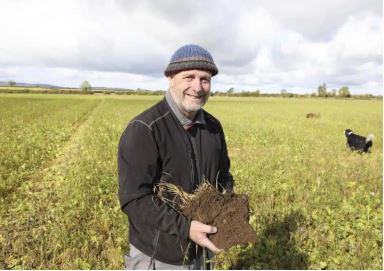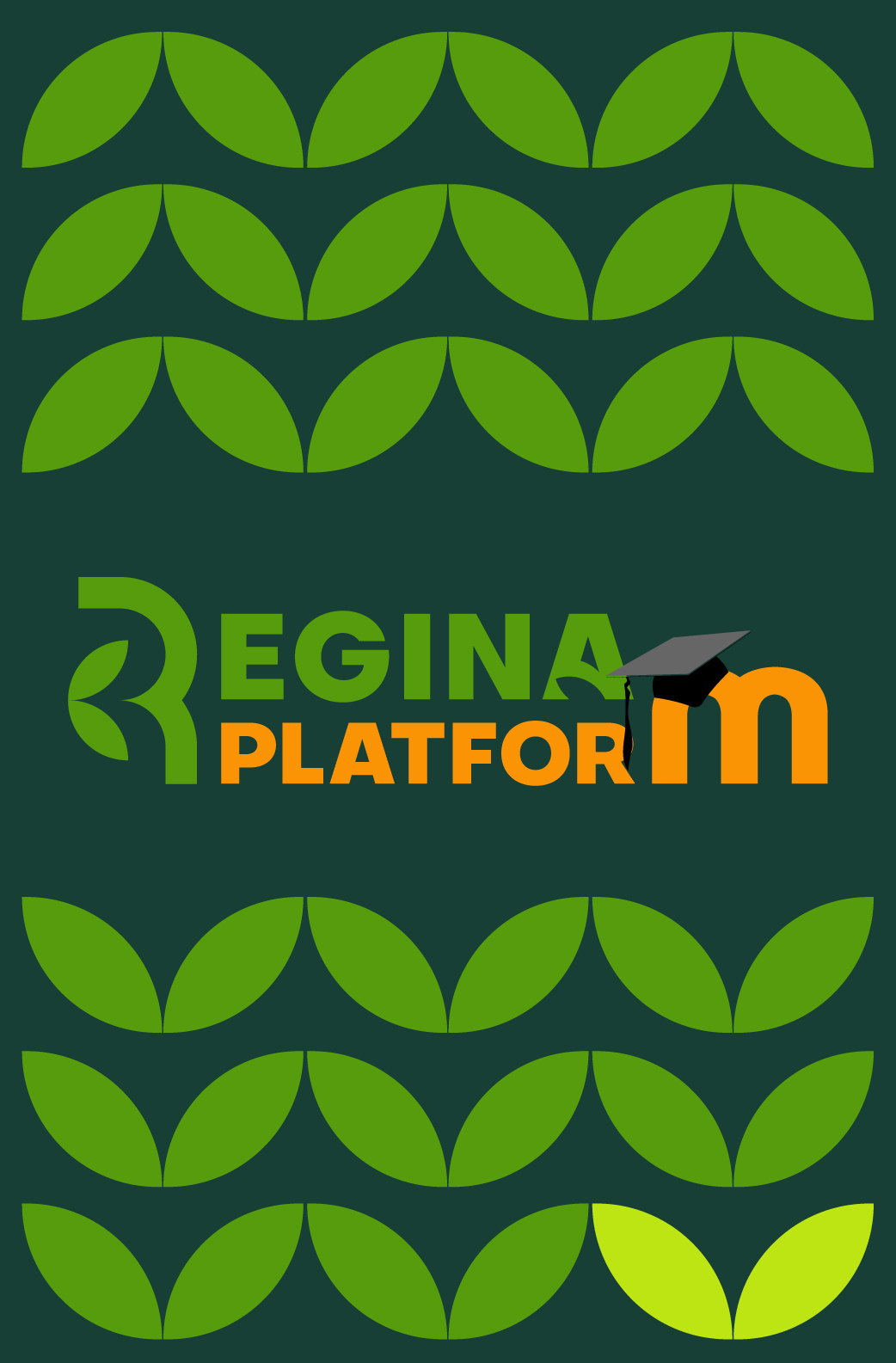Andrew Bergin, Arable Farmer
Success Story
Andrew Bergin farms a 90-hectare regenerative tillage farm in County Kildare, growing a wide variety of crops from peas, beans, oil seed rape, winter wheat, spring wheat, barley and oats.
Spaces for Nature
Andrew has a variety of hedgerows and natural field margins across his farm to aid biodiversity and pollinator life. Andrew sees pollinators as an indicator of the health of the environment; “if you’ve pollinators, there are a lot of other things going right”.
No Ploughing and Minimum Tillage
In 2013, Andrew saw a demonstration for a new Strip Till machine, and he could immediately see the advantages; “the crops and ground seemed happier”.
Andrew moved away from ploughing that year with the transition phased over 4 years and all arable ground ‘no-till’ by 2017 . In 2022, a 20-year old direct drill was replaced with a new one with the help of a TAMS (Targeted Agriculture Modernisation Schemes) grant . A direct drill machine does exactly what it says on the tin; directly drilling the seeds into the soil, whilst minimally disrupting the soil’s structure.
Protecting the Soil through Cover Crops
Andrew ensures that cover crops, containing a mixture of plant species, are established as quickly as possible after harvest. Maintaining a living root in the soil at all times across the land protects the soil from damage and is a key principle of Regenerative Agriculture.
Cover crops greatly reduce the amount of carbon lost to the atmosphere, as well as making the soil more resilient to extreme weather conditions.
Protecting Ground Nesting Birds
Cover crops come with more benefits than soil health, due to the high rates of nesting birds and other wildlife that are attracted to the diverse landscape. Andrew stated that “the number of ground nesting birds has exploded” since he stopped ploughing, such as Skylarks and Meadow Pippets.
Taking Part in Farmer-Led Regenerative Initiatives
Andrew is part of a project called “Danú Farming Group”, that involves 12 farms who are doing a rigorous study of the process of transitioning from conventional to regenerative farming practices over a 5-year period. Andrew enjoys learning from other farmers and taking pragmatic steps to regenerate his land.
Andrew is also a member of the Irish farmer-run regenerative agriculture group called “BASE Ireland” (Biodiversity, Agriculture, Soil & Environment). Here, farmers share their experience with regenerative agriculture and also share advice to other farmers trying out these alternative farming methods.
Andrew believes that regenerative farming “would be very hard without the BASE community and the internet”. Indeed he doesn’t think he could have ever transitioned to regenerative agriculture without the knowledge on the internet and other farmers.
Andrew’s Advice to Farmers considering Regenerative Agriculture
Andrew encourages farmers who are interested in regenerative agriculture to start slowly, taking one field at a time, for example. For tillage farmers, he suggests hiring a contractor with a no-till drill to trial the minimum till practices on their land. If it works for them, then a gradual conversion to regenerative farming is the way to go.
Regenerative Agriculture: Empowering Farmers
Andrew describes how regenerative farming is “not prescriptive” or conventional in any way. It is about using your own judgement to assess what is happening with the crop, and to apply the practices that make sense to your specific landscape. For Andrew, regenerative agriculture and no-till farming has saved him an “enormous” amount of time and money.
Being Open to New Ways of Working & Different Opinions
Andrew states that engaging in regenerative agriculture involves “keeping a very open mind” and engaging with other people and farmers to discuss new ideas and opinions. Andrew expressed the importance of sharing information “in a non-confrontational way”. He discusses the importance of farm nature walks in allowing farmers to “take the day off to chat” with like-minded farmers who can share stories and ideas with one another.
Challenges to Regenerative Agriculture in Ireland
Andrew discussed how one of the biggest obstacles to regenerative agriculture is first a lack of information, and secondly, having to take the risk of converting to a new way of farming. He hopes that further research in this area will aid in reducing the risks for farmers in their trial-and-error conversion process to regenerative agriculture.
Andrew believes that regenerative techniques can benefit conventional farming in many ways, and he hopes that the Irish advisory bodies begin to recognize this as more research gets published.
Keeping Farming Fresh & Engaging
Since beginning his journey into regenerative agriculture, Andrew states that for him, “farming is a lot more engaging and interesting now”. Andrew has met a wide variety of “interesting people and younger farmers”, expressing how this social element to regenerative agriculture has a huge community and personal development benefit.
He finds it exciting to convince other farmers of the benefits of regenerative agriculture. Andrew recognizes that this less-destructive form of agriculture can look a “bit scruffy looking” at times, but beauty is very much so in the eye of the beholder.
Andrew intends to continue farming regeneratively and is “all the time striving to find better ways” of doing things.
LABELS: Ireland, crop-production, green fertilisation, biodiversity, crop rotation, No-Tillage
|
GENERAL INFORMATION |
|
Location of farm |
Ireland, Athy, Co. Kildare |
|
Name of the farmer |
Andrew Bergin |
|
Size of farm |
90 ha |
|
Permanent staff |
1, with temporary harvest help |
|
Main products of farm |
Peas- canning, oil seed rape- animal feed and oil, winter wheat- animal feed and bread, spring wheat- milling for bread, spring barely- beer, oats- animal feed and porridge, sometimes grown for seeds |
|
CURRENT REGENERATIVE AGRICULTURE PRACTICES ON THE FARM |
|
Farmland cultivated with RA practices |
All |
|
Crops produced with RA practices |
All |
|
Duration of using RA practices |
Since 2013 |
Read more information in pdf...

The REGINA project (No. 2021-1-HU01-KA220-HED-000027629) was funded by the European Commission. The content of this website does not necessarily reflect the views of the European Commission.
Call 2021, KA220 – Cooperation Partnerships in Higher Education
The European Commission’s support for the production of the publications does not constitute an endorsement of the contents, which reflect the views only of the authors, and the Commission cannot be held responsible for any use which may be made of the information contained therein.


